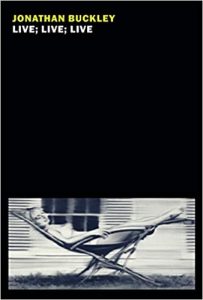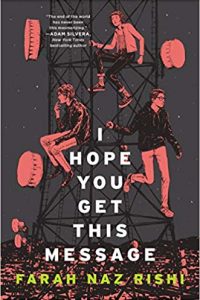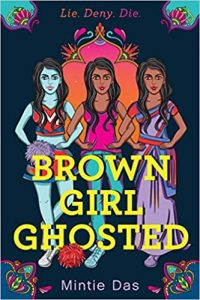Ian Mond Reviews Live; live; live by Jonathan Buckley
 Live; live; live, Jonathan Buckley (Sort of Books 978-1-908-74587-3, £11.99, 288pp, tp) July 2020. (New York Review Books 978-1-681-37547-2, $16.95, 272pp, tp) February 2021.
Live; live; live, Jonathan Buckley (Sort of Books 978-1-908-74587-3, £11.99, 288pp, tp) July 2020. (New York Review Books 978-1-681-37547-2, $16.95, 272pp, tp) February 2021.
I first heard Jonathan Buckley’s name mentioned on the Locklisted podcast (a Patreon-only spin-off of Backlisted, the best literary podcast on the planet) where the co-host John Mitchinson spoke glowingly of Buckley’s 11th and latest novel, Live; live; live. What caught my ear was that the book, to paraphrase John, took a deeply philosophical approach to the occult and what happens to us after we die. When I then saw that the New York Review Books was releasing the US edition in February (the initial UK publication received little-to-no attention when it was published mid-last year), I immediately requested a copy for review. I’m glad I did, because, while Live; live; live might a very subtle and low-key book, it’s a beautifully poised novel about mysteries both eternal and mundane.
Live; live; live is told from the perspective of Joshua, a middle-aged man reflecting on his not entirely conventional relationship with the next-door neighbour Lucas Judd, an enigmatic gentleman who purportedly could speak with the dead. The narrative is mostly a jigsaw puzzle of Joshua’s childhood and adult recollections, blended with biographical detail about Judd (related first-hand by the medium) and these wonderful Sebaldian segues into the history of occult phenomena. Of the latter, they include digressions into Arthur Conan Doyle’s well-documented interest in spiritualists, the work of 18th-century theologian Emanuel Swedenborg (a true believer in psychic phenomena) and Arthur Findlay’s books on séances and the afterlife which a century later remain in print (all available on Amazon). Rather than provide clarity, these interludes, quite cleverly, reinforce the mystery and ambiguity surrounding Lucas Judd. That’s not to say we don’t learn anything about the man. Joshua’s conversations with Judd dive deep into the man’s beliefs about the soul. Judd also details how he obtained his gift, beginning with the aftermath of a car crash that nearly took his life at the age of thirteen, which led to his first out-of-body experience.
… and suddenly it was as if his mind had withdrawn into a place that was impossible. His body had become a huge thing, and he was occupying a small part of it… It was like being in a deep cave within the mountain […] He saw the doctor, but not with the eyes of his body. The Lucas who was observing the doctor did not have a body; this was Lucas was consciousness that occupied no definable location within the room but had an awareness – a precise awareness – of what was being done to gather body that hitherto been its residence.
There’s more, including the night Lucas saw the spirit of his father in a hostel in north Wales and the first time the dead whispered something into his ear. None of these discussions, though, as personal as they are, bring Joshua (or the reader) any closer to understanding or confirming whether Judd can speak to the dearly departed.
The level of uncertainty around the medium takes on a more intimate register for Joshua when he attempts to reconcile Judds’s relationship with the women in his life. Take the next-door neighbour, Kathleen Oliver, who initially seeks out Judd’s services following her husband’s death. When Judd moves in with her, a good deal younger than the widow, it smacks of a man staking his claim, waiting for her to die – at least that’s the view of Joshua’s mother. But for Joshua, the arrangement is never that clear. On the many visits to the house, he noted how sometimes Kathleen “spoke to Lucas like a mother to her son,” and sometimes as if Judd were a live-in-assistant. And yet, “it was evident that a true affection existed, at least, and was reciprocated”.
After Kathleen dies, Lucas does take up permanent residence in the house, and soon after a young woman, Erin, moves in with him. As was the case with Kathleen, Judd meets Erin when he is invited to her family’s house to communicate with Erin’s recently departed brother. Just like Kathleen, for reasons that are never entirely clear, given the lack of intimacy between the older man and the younger woman, she decides to live with Judd. For Joshua, this is all the more confusing and fraught because he has fallen in love with Erin.
The introduction of Erin reads like a cliché; the young woman who complicates matters for the men, leading to mistrust and betrayal. But that’s not Buckley’s intent. Even when Erin has a child with a man who is neither Judd nor Joshua, the novel never takes a dramatic turn; Joshua’s perspective maintains a calm, detached quality even if he can’t discern why Erin won’t love him back. The understated, though always elegant prose, gives the final pages of the novel a chilling, even dangerous edge as our attention shifts to Joshua, as we begin to doubt his motivations toward Erin. As with the ambiguity encircling Judd, though, questions remain unanswered. While this lack of a clear resolution may frustrate some readers, to again borrow John Mitchinson’s words, Live; live; live is a very grown-up novel.
This review and more like it in the February 2021 issue of Locus.
 While you are here, please take a moment to support Locus with a one-time or recurring donation. We rely on reader donations to keep the magazine and site going, and would like to keep the site paywall free, but WE NEED YOUR FINANCIAL SUPPORT to continue quality coverage of the science fiction and fantasy field.
While you are here, please take a moment to support Locus with a one-time or recurring donation. We rely on reader donations to keep the magazine and site going, and would like to keep the site paywall free, but WE NEED YOUR FINANCIAL SUPPORT to continue quality coverage of the science fiction and fantasy field.
©Locus Magazine. Copyrighted material may not be republished without permission of LSFF.







